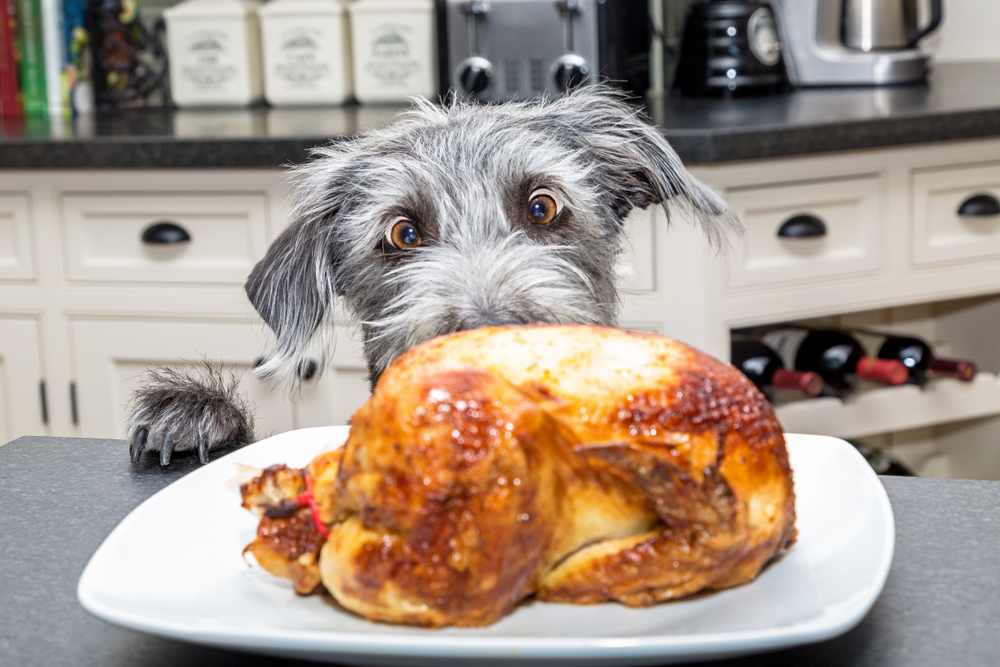It’s the time of year when we start seeing more cases of pancreatitis in dogs. Thanksgiving and other holidays are all about food, food, and did we say, food? If you are busily preparing for a feast this year, one thing to remember is pet safety. This time of year sees a spike in the number of pets diagnosed with toxicity or poisoning from eating something they shouldn’t, as well as an increase in cases of pancreatitis.
Canine pancreatitis is a serious veterinary emergency often linked to the ingestion of fatty, rich foods. To help you maintain the holiday cheer, the team at Westarbor Animal Hospital is here to provide insight into pancreatitis in dogs.
What Is Pancreatitis in Dogs?
Pancreatitis is an inflammation of the pancreas, the small organ located behind the stomach and small intestine. The pancreas is essential in breaking down food during digestion and regulating blood sugar. The enzymes in the pancreas begin reacting during a bout of pancreatitis. This triggers these enzymes to digest the pancreas, which inflames the tissue and can lead to serious pain.
The Symptoms of Canine Pancreatitis
Pancreatitis can occur suddenly as an acute condition, while other dogs struggle with re-occurrences over time. Sometimes, symptoms take a few days to actually show up, so this is why it is so important to keep track of any signs or red flags early.
Clinical signs of pancreatitis in dogs include:
- Hunched back
- Vomiting
- Diarrhea
- Loss of appetite
- Abdominal pain
- Fever
- Dehydration
- Lethargy/Weakness
There are times when a pet eats something that they shouldn’t, or too much food, which can trigger nausea, vomiting, and diarrhea. If your pet is having symptoms that don’t subside after a few hours, call us for an examination.
Causes of Canine Pancreatitis
There is no one thing that leads to pancreatitis, but there are factors at work that contribute to it.
- A high-fat diet or fatty foods in a larger portion at one setting
- Obesity
- Letting your dog eat whatever they want
- Hypothyroidism
- Diabetes mellitus
- Trauma
- Toxicity
- Genetics
Diagnosis and Treatment of Pancreatitis in Dogs
Diagnosing a dog with pancreatitis involves a physical examination, blood work, and diagnostic imaging like ultrasound. Treatment can be successful when diagnosed early. Your dog will receive medication to decrease pain and inflammation, while controlling vomiting and diarrhea. If your pet is dehydrated, then will receive IV fluid therapy and will be monitored to ensure inflammation is not progressing.
Some dogs will need to be transferred to the local emergency facility for hospitalization and care based on the severity of the condition.
The main takeaway from this blog focused on pancreatitis in dogs is prevention. Keep your dog from getting into leftovers, trash, or compost. Limit their treats to things that are healthy, such as a cooked piece of turkey without the skin or some steamed green beans. Or, just give them a normal dog treat while the family feasts during the holidays.
If you would like more information on canine pancreatitis, or would like to schedule an appointment, please contact us.


